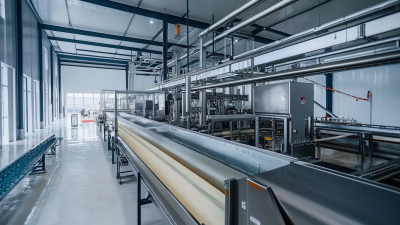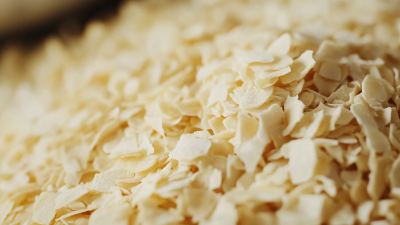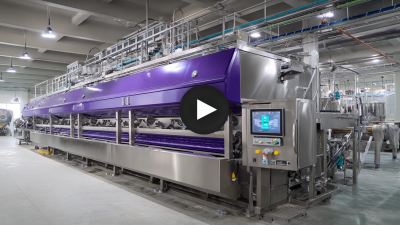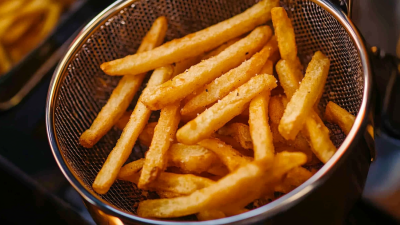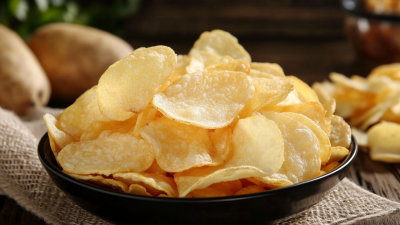
In the competitive landscape of food production, maximizing efficiency in your Potato Flakes Processing Line is crucial for ensuring profitability and sustainability. This blog will explore various strategies aimed at streamlining each stage of the processing line, from raw material handling to final product packaging. By implementing targeted improvements, manufacturers can reduce waste, minimize downtime, and enhance overall product quality. Whether you're a seasoned professional or new to the industry, understanding the intricacies of optimizing your processing line will empower you to make informed decisions that lead to increased productivity and operational excellence.

Join us as we delve into actionable insights and expert tips to elevate your Potato Flakes Processing Line performance to new heights.
In the competitive landscape of food production, understanding the importance of efficiency in potato flakes production is crucial for manufacturers seeking to maximize their output while minimizing costs. Efficiency not only enhances productivity but also improves the quality of the final product. By streamlining processing lines, businesses can reduce waste, lower energy consumption, and improve labor productivity, all of which contribute to a healthier bottom line.
One of the key factors in achieving optimal efficiency is the integration of advanced technology in the processing line. Implementing automation and real-time monitoring systems allows for precise control over processing conditions, ensuring that each batch meets consistent quality standards. Moreover, regular maintenance of equipment can prevent unexpected breakdowns and prolong machinery lifespan, thereby enhancing operational efficiency. Training staff on best practices and efficient workflows is also vital, as a skilled workforce can identify bottlenecks and suggest improvements that lead to ongoing efficiency gains.
| Strategy | Description | Expected Efficiency Gain (%) | Implementation Ease (1-5) | Cost Implication |
|---|---|---|---|---|
| Process Automation | Implementing automated machinery to reduce manual labor. | 20 | 4 | High |
| Regular Maintenance | Scheduled checks and repairs to prevent downtime. | 15 | 5 | Medium |
| Staff Training | Improving workforce skills to enhance productivity. | 10 | 4 | Low |
| Quality Control Systems | Implementing QC measures to reduce waste and rework. | 18 | 3 | Medium |
| Lean Manufacturing Techniques | Adopting lean principles to minimize waste and improve flow. | 25 | 2 | Low |
In today's competitive food processing landscape, optimizing your potato flakes processing line is crucial for maintaining high efficiency and product quality. Leveraging key technologies can significantly enhance the performance of your processing line. According to a report by the Food Processing Industry Association, automated systems can reduce operational costs by up to 30% while increasing throughput. Implementing advanced sorting and peeling technologies ensures only the best raw materials enter the processing pipeline, directly impacting the final product quality.
**Tip:** Invest in state-of-the-art infrared sorting systems to improve both yield and quality. This technology leverages light wavelengths to accurately identify defects in potatoes, leading to better selection prior to processing.
Additionally, integrating real-time monitoring systems can provide valuable insights into operational performance. A study published by the Institute of Food Technologists highlighted that companies utilizing IoT-driven analytics experienced a 25% reduction in downtime. These systems track key metrics such as temperature and moisture levels, allowing for immediate adjustments that minimize waste and enhance overall efficiency.
**Tip:** Consider deploying predictive maintenance solutions to anticipate equipment failures before they occur, thereby maintaining a seamless processing operation and reducing costly interruptions.
Integrating data analytics into the potato flakes processing line is crucial for enhancing efficiency and quality. According to a recent report by the Food Processing Technology Journal, manufacturers that implemented real-time monitoring systems experienced a 15% reduction in processing downtime and a 10% increase in overall output. By utilizing advanced analytics, companies can track key performance indicators and identify bottlenecks in the production cycle, allowing for timely adjustments that optimize workflows.
Moreover, predictive analytics can further enhance operational efficiency. A case study published in the International Journal of Food Science highlighted how a leading potato processing plant utilized data analytics to predict equipment failures before they occurred, reducing maintenance costs by approximately 20%. Real-time data collection from sensors integrated into machinery allows for instant feedback, enabling proactive decision-making that improves not only efficiency but also product quality. This strategic approach is essential for stakeholders looking to maintain competitiveness in a rapidly evolving market.

In the quest to streamline workflow and minimize downtime in potato flakes processing, integrating modern technologies is paramount. Studies have shown that applying lean manufacturing concepts can significantly enhance efficiency and reduce waste in industrial processes. For instance, a recent report highlighted that implementing these principles can lead to a 20-30% reduction in production costs while improving product quality. This is particularly relevant for the food processing industry, where maintaining high standards amidst cost pressures is crucial.

Moreover, the adoption of automation and Internet of Things (IoT) technologies can further revolutionize operations. Research indicates that organizations leveraging IoT can achieve an improvement of 15-25% in operational efficiency. Smart sensors and connected devices enable real-time monitoring and predictive maintenance, reducing unplanned downtimes that often plague processing lines. As businesses adopt these strategies, they set themselves up for not only increased productivity but also enhanced profitability in an increasingly competitive landscape. Utilizing AI for process optimization can also yield transformative results, helping teams make data-driven decisions that streamline workflows effectively.
In the quest for optimizing potato flakes processing line efficiency, the human factor remains a critical element that cannot be overlooked. According to a report by the Food Processing Industry Research Institute, up to 80% of production inefficiencies stem from operator errors and inadequate training. Therefore, investing in comprehensive training programs can lead to significant improvements in operational accuracy and throughput. Regular training sessions not only enhance skill sets but also foster a culture of continuous improvement amongst team members.
Furthermore, engaging workers in the optimization process promotes a sense of ownership and accountability. A study published in the International Journal of Food Engineering revealed that companies that implemented structured training and feedback mechanisms saw a 15% increase in processing efficiency. By empowering employees with knowledge about the latest technologies and best operational practices, companies can reduce downtime and waste while maximizing output. Ultimately, a well-trained team is an invaluable asset that can drive sustainable efficiency in the potato flakes processing line, making it imperative for management to prioritize human resources alongside technological upgrades.
